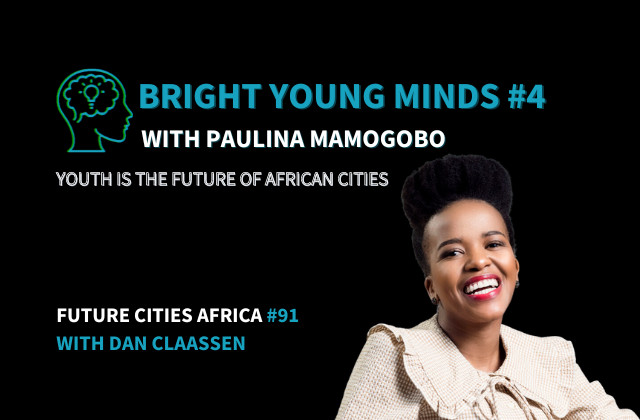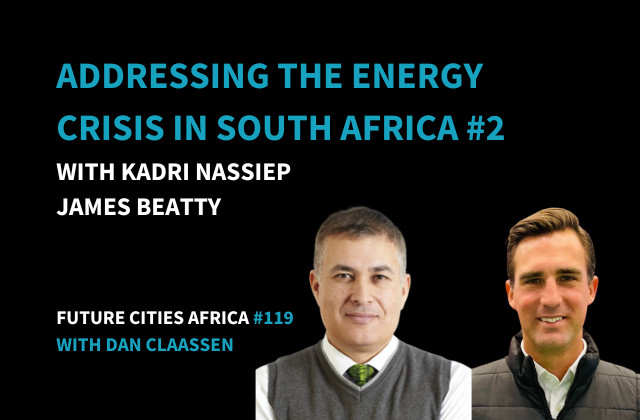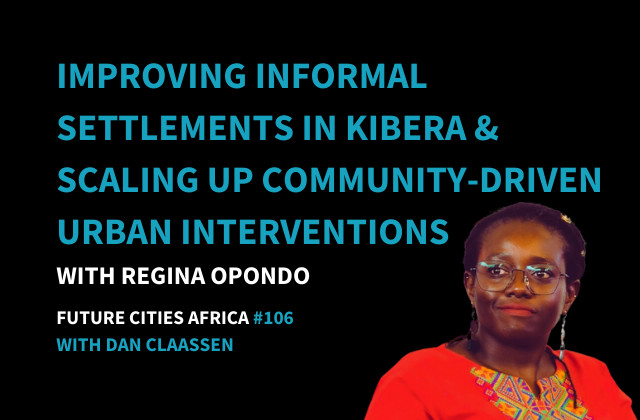Listen to Audio
Preparing Western Cape Businesses for CBAM Challenges and Opportunities: Episode 3
The Carbon Border Adjustment Mechanism (CBAM) is a key policy tool that forms part of the European Green Deal (EGD) to reduce net GHG emissions across Europe and abroad. In this three-part series, we will unpack its implications on business, building business resilience, key opportunities, where to find support, and much more.
Stay Connected
Episode Overview:
The Carbon Border Adjustment Mechanism (CBAM) is a key policy tool that forms part of the European Green Deal (EGD) to reduce net GHG emissions across Europe and abroad. Within this context, CBAM can be defined as a carbon border tax on embedded GHG emissions of carbon-intensive products imported into the EU, also from SA. It can be viewed as an opportunity to drive local businesses towards greater economic resilience and green innovation. In this series of episodes, we will unpack its implications on business, building business resilience, key opportunities, where to find support, and much more.
This episode is part of the "Preparing Western Cape businesses for CBAM challenges and opportunities", a three-part series supported by the Western Cape Government Department of Environmental Affairs and Development Planning, produced in partnership with GreenCape, featuring Karen Bosman, Head: Advocacy & Advisory, Wesgro.
Episode Summary:
- 00:00:00 In this section Karen Bosman provides an introduction to the Carbon Border Adjustment Mechanism (CBAM). The CBAM is a specific regulatory mechanism within a larger toolkit of countries aiming to reach their climate targets. It is aimed at carbon-intensive products imported into a jurisdiction to level the playing field and ensure that imports from countries with less stringent environmental regulations or carbon prices do not undercut the market or undermine climate commitments. Karen also highlights the increasing nexus between climate regulation and international trade regulation, which has led to a clash between the way the international economy has been regulated historically and the introduction of climate measures. The CBAM is a contentious issue in this context, and there is ongoing debate about its international acceptability. Additionally, Ms Bosman mentions the concept of corporate-level decarbonisation, which is becoming increasingly important as countries work towards their climate targets.
- 00:05:00 In this section Karen Bosman discusses the increasing importance of environmental, social, and governance (ESG) commitments at the corporate level, which are becoming standardised and mandatory in various jurisdictions. She explains that while the Carbon Border Adjustment Mechanism (CBAM) is different from ESG regulations, it has a similar effect, as businesses that cannot decarbonise their production or supply chain will lose their competitive edge. The CBAM is a specific regulatory measure implemented by the European Union (EU) that charges a fee on the carbon intensity of certain imported products, including cement, iron and steel, aluminium, fertilisers, electricity, and hydrogen. The administrative burden of reporting and verifying emissions is also significant. South Africa, with its high carbon intensity, is particularly affected, as products with high carbon intensity will face higher fees once the transitional phase ends. Currently, there is no charge during the transitional phase, but reporting on direct and indirect emissions is required. Exporters and importers in Europe are struggling to comply with these requirements.
- 00:10:00 In this section Karen Bosman discusses the uncertainty surrounding the Carbon Border Adjustment Mechanism (CBAM) and its potential impact on businesses. The CBAM is a European Union initiative aimed at reducing carbon emissions and levelling the playing field for local producers. Currently, products under the EU Emissions Trading System (ETS) will be subject to the CBAM, and while some indirect emissions may not be charged during the transitional period, this is subject to review. She emphasises that the CBAM will be implemented in conjunction with the EU ETS, which is expanding to include more products. Local producers have previously been provided free allowances under the EU ETS, but these are being phased out, and the CBAM will take their place. The shift towards decarbonisation is necessary for competitiveness as many countries, including South Africa, have committed to reducing carbon emissions through regulations and consumer demand. The European Union is leading the charge with the Corporate Sustainability Reporting Directive (CSRD) and the Corporate Sustainability Due Diligence Directive, which will mandate reporting on environmental and social impacts and require companies to examine their supply chain emissions.
- 00:15:00 In this section Karen Bosman discusses the challenges and opportunities presented by the Carbon Border Adjustment Mechanism (CBAM) for businesses in the Western Cape and South Africa, particularly those exporting to the European Union. The CBAM places a responsibility on companies for environmental and social issues in their supply chains, making it harder for high-carbon intensity products to compete in the European market. To remain competitive, it's crucial for the jurisdiction to enable companies to decarbonise, either by accessing renewable energy or decarbonising the grid. The CBAM also impacts investment competitiveness, as investors require clean energy and certifications to prove its origin. The CBAM is a contentious issue internationally, with pushback from countries like South Africa and India, and questions around its compatibility with WTO rules and fairness. There are also concerns about its ability to achieve decarbonisation goals and whether it's more of a protectionist measure.
- 00:20:00 In this section Karen discusses the different approaches countries are taking regarding the Carbon Border Adjustment Mechanism (CBAM). Developed countries, such as the UK, US, and Japan, are considering implementing their own CBAMs to keep more tax money within their jurisdictions due to the significant price difference in carbon taxes between their countries and exporting countries like South Africa. She also emphasises the importance of a country's carbon intensity in determining the impact of CBAM on its exports. The Western Cape, a significant exporter to the EU, exported 180 million Rand worth of goods to the EU in 2023, with the iron and steel industry and aluminium exporters being the most exposed sectors to the CBAM. The initial impact of the CBAM is expected to be incremental, but over time, the effect will be more pronounced as more countries implement it. Karen concludes by emphasising the importance of local, provincial, and national governments supporting businesses with the correct methodologies for reporting, verification, and certification of clean energy.
- 00:25:00 In this section Karen discusses the importance of clean energy in the face of CBAM (Carbon Border Adjustment Mechanism) regulations. The Western Cape's ability to provide stable and increasingly clean energy to businesses is seen as a reassuring investment offering in a world where accounting for carbon emissions will be crucial for global competitiveness. The leadership's commitment to clean energy strengthens the destination's investment offering.







